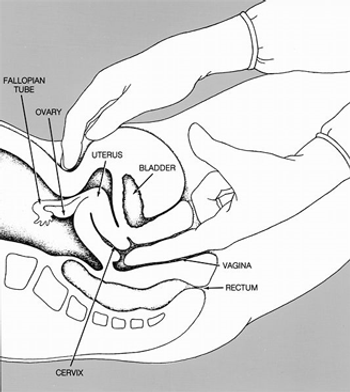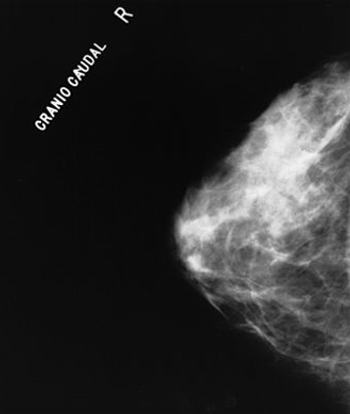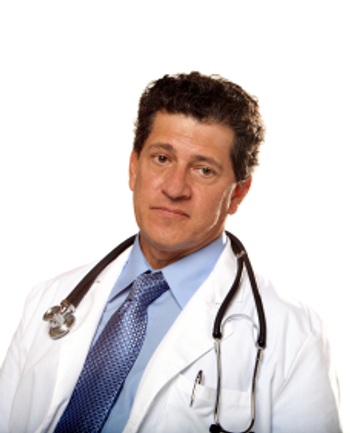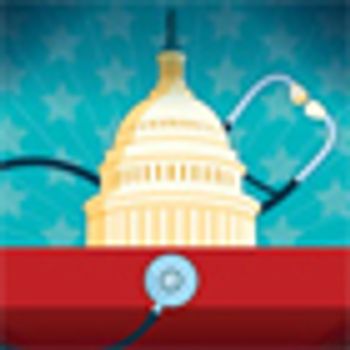
Patient navigators can play an important role in helping poor and underserved women overcome barriers to receiving recommended care for breast cancer, a recent study found.

Your AI-Trained Oncology Knowledge Connection!


Patient navigators can play an important role in helping poor and underserved women overcome barriers to receiving recommended care for breast cancer, a recent study found.

A 3-year pilot program that rewarded oncologists for improving outcomes and efficiency-rather than administering drugs-significantly reduced overall costs without lowering quality of care.

A new clinical practice guideline from the American College of Physicians recommends against conducting routine pelvic exams in average-risk, asymptomatic women.

Researchers have developed a tool to measure patients’ risk for financial toxicity following cancer diagnosis and treatment.

A new guide developed by nurses and patients with gynecologic cancer offers a much-needed practical resource for women struggling to understand the impact of cancer treatment on their sexual health.

Oncologists who participated in communication workshops improved their ability to talk with patients about their prognoses and provide emotional support, a recent study found.

Advertisements for cancer centers often appeal to consumers’ emotions but rarely provide useful information about the benefits, risks or costs of treatment, a recent analysis concluded.

Medicare’s payment system for cancer care services should be restructured to focus on value over volume and offer incentives for providing high-quality, patient-centered care.

Physicians can help older women make informed mammography decisions by taking into account life expectancy and the harms and benefits of breast cancer screening.

The Society of Gynecologic Oncology (SGO) recently issued two new clinical practice statements recommending genetic testing for all women with endometrial and ovarian cancers, regardless of family history.

In order to remain independent, community oncologists must align themselves with a critical mass of providers in their local or regional markets and be prepared to accept more financial risk for the quality and cost of care they provide.

The risk for burnout appears to rise in direct proportion to the number of hours oncologists spend on direct patient care, according to a recent survey by ASCO.

Using EHRs to generate survivorship care plans has the potential to expand use of the plans and improve coordination of follow-up care among oncologists, survivors, and primary care physicians, according to a recent study.

Demand for oncologists and radiation oncologists will continue to outpace supply over the next decade as more patients become insured under the ACA.

Integrating palliative care earlier in the disease process can improve quality of life and possibly survival for patients with advanced cancer but its value is widely misunderstood, according to a recent review by palliative care experts.

Delivering patient-centered care and engaging in shared decision-making should be top priorities for oncologists responding to the current crisis in the quality of cancer care delivery, according to a recent Institution of Medicine report.

The American Society of Clinical Oncology (ASCO) today issued its second “Top 5” list of tests and treatments that are routinely used by oncologists despite a lack of evidence that they are cost effective or beneficial to patients.

Most community cancer centers are only beginning to measure quality of care and are struggling with the challenge of collecting data while adding services and keeping costs in check, concluded a recent survey by the Association of Community Cancer Centers (ACCC).

The Center for Medicare and Medicaid Services is inviting physicians to comment on a proposal to make individual physician payment data accessible to the public.

A group of cancer and other healthcare advocacy organizations applauded a provision in the Affordable Care Act that requires private insurers to cover the routine medical costs of patients participating in clinical trials. However, many of those patients will continue to face roadblocks to participating in trials unless the federal government provides clear guidance on implementation, the groups said in a recent letter.

Developing an effective personal and professional self-care plan can help oncologists deal with the pressures of caring for terminally ill patients and potentially prevent burnout, a recent study suggests.

Oncologists hit by sequester budget cuts to the cost of purchasing and administering cancer drugs are hoping that the potentially devastating impact on Medicare cancer patients will force a quick legislative fix in Congress.

New guidelines make recommendations on how physicians should conduct themselves online, examining the effect of Facebook and Twitter on patient-physician relationships.